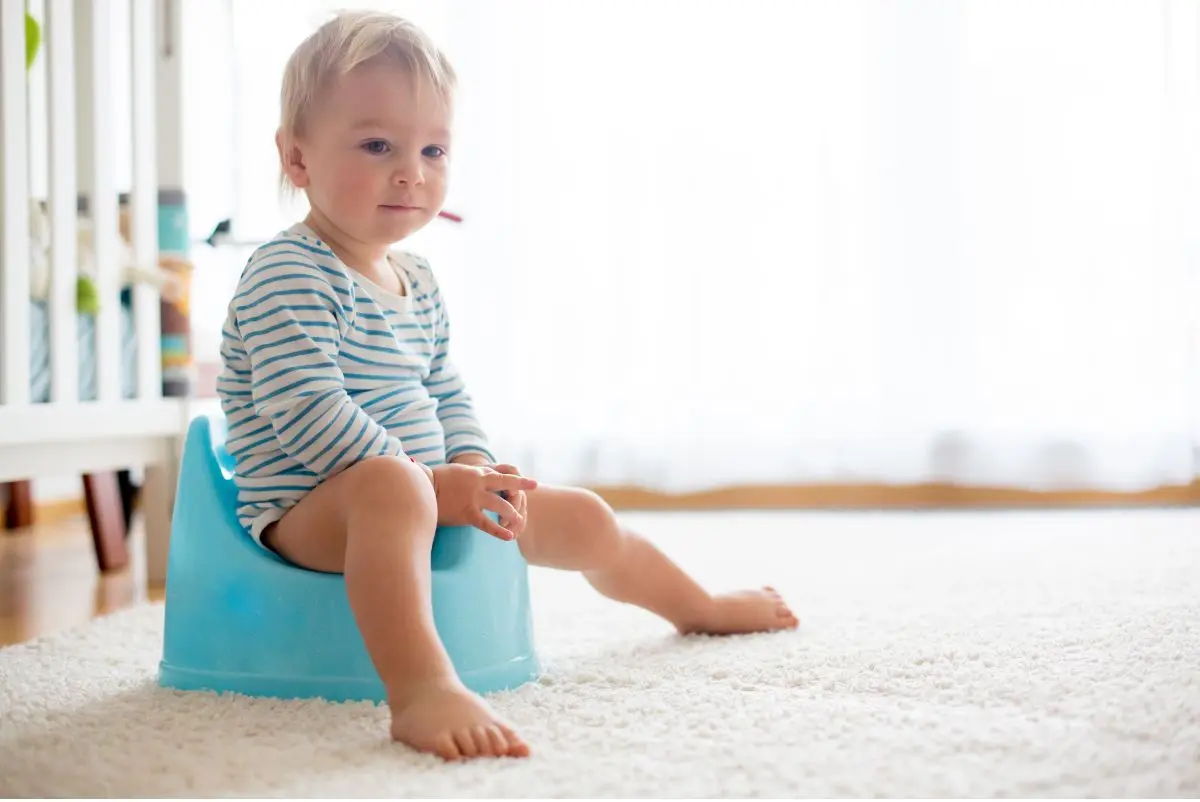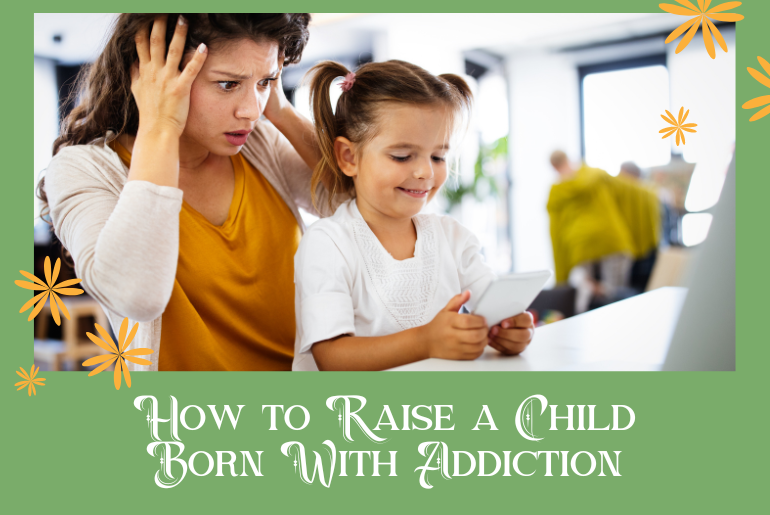Potty training is a major milestone for both parents and children. It can be a challenging and time-consuming process, but with the right tips and tricks, it doesn’t have to be a stressful experience. In this guide, we’ll discuss the signs that your child is ready for potty training, the different methods available, and some essential tips to ensure success.
Signs Your Child is Ready for Potty Training
Before you begin potty training, it’s essential to determine if your child is ready. Look for the following indicators:
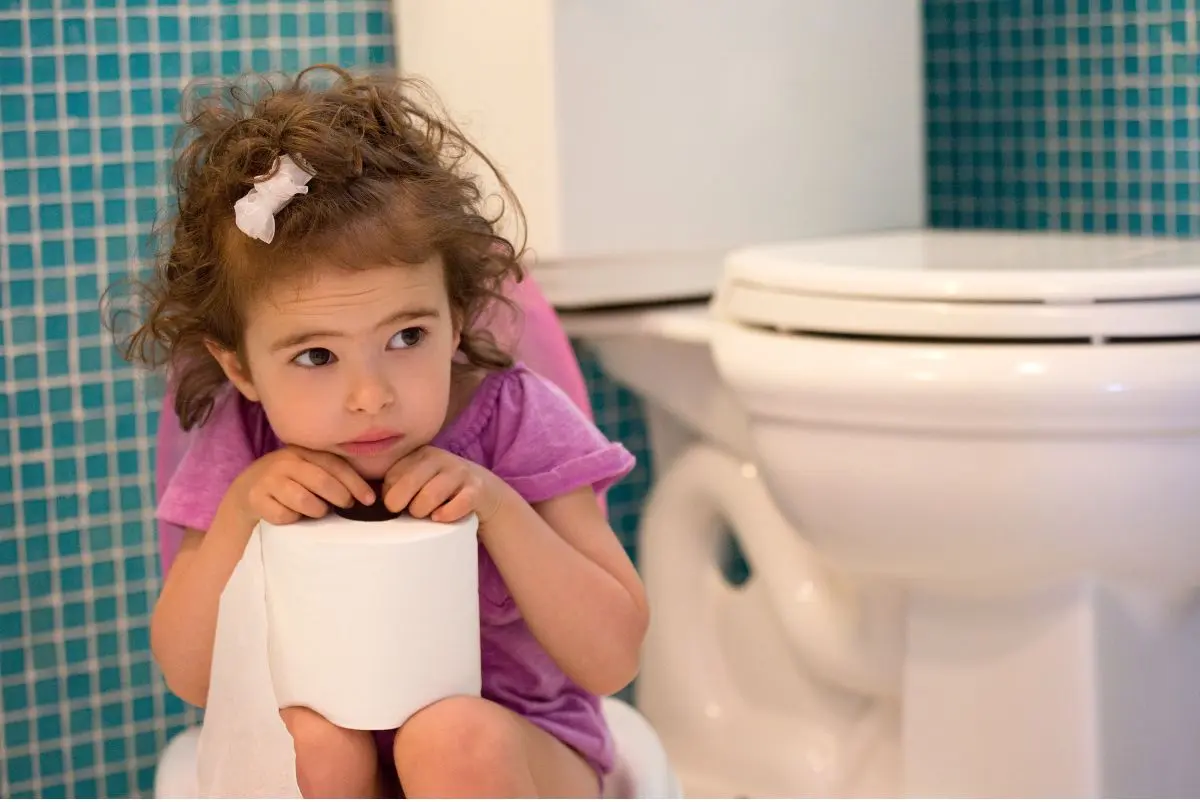
1. Age
Although there’s no specific age when a child should start potty training, most children show readiness between 18 months and 3 years old.
2. Communication
Your child should be able to communicate their needs, such as telling you when they’re wet or uncomfortable.
3. Physical Signs
Look for signs that your child can control their bladder and bowel movements, such as staying dry for at least two hours at a time or waking up dry after a nap.
4. Behavioral Signs
Your child should show an interest in using the toilet, such as following you to the bathroom or wanting to wear underwear instead of diapers.
Potty Training Methods
There are various potty training methods, and it’s essential to choose the one that best suits your child’s personality and your family’s schedule. Here are three popular methods:
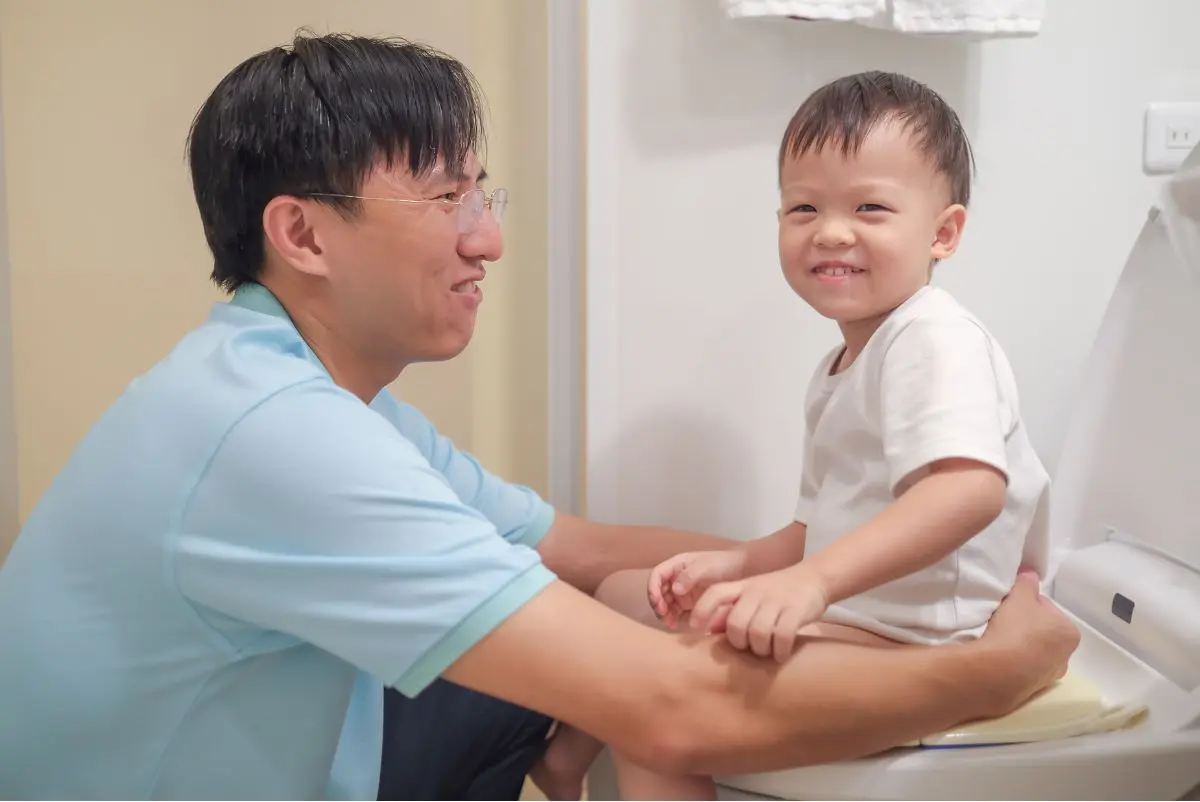
1. The 3-Day Method
This method involves dedicating a weekend to potty training, staying home with your child, and encouraging them to use the toilet consistently. It works well for children who learn quickly and parents who can dedicate a few days to the process.
2. Child-Oriented Method
This approach is based on the child’s readiness and allows them to take the lead. You can introduce the potty and encourage its use but don’t pressure them. This method requires patience and may take longer but ensures the child is comfortable with the process.
3. Intensive Toilet Training
This method involves setting a strict schedule for potty breaks, usually every 30 minutes to an hour, and rewarding successful attempts. It’s best for children who respond well to structure and parents who have the time and energy to commit to the process.
Tips for Success
Regardless of the method you choose, these tips will help ensure a successful potty training experience:
1. Consistency
Establish a routine and stick to it. Consistency is key to helping your child understand and follow the process.
2. Praise and Rewards
Celebrate your child’s successes with praise, stickers, or small rewards. This positive reinforcement encourages them to continue their efforts.
3. Be Patient
Potty training takes time, and every child is different. Be patient and understanding, and remember that setbacks are a normal part of the learning process.
Dealing with Setbacks
Accidents will happen. Stay calm, and use these opportunities to remind your child about the correct process. Avoid scolding or showing disappointment, as this may discourage them.
Toilet Training Essentials
To make the potty training process as smooth as possible, consider these essentials:
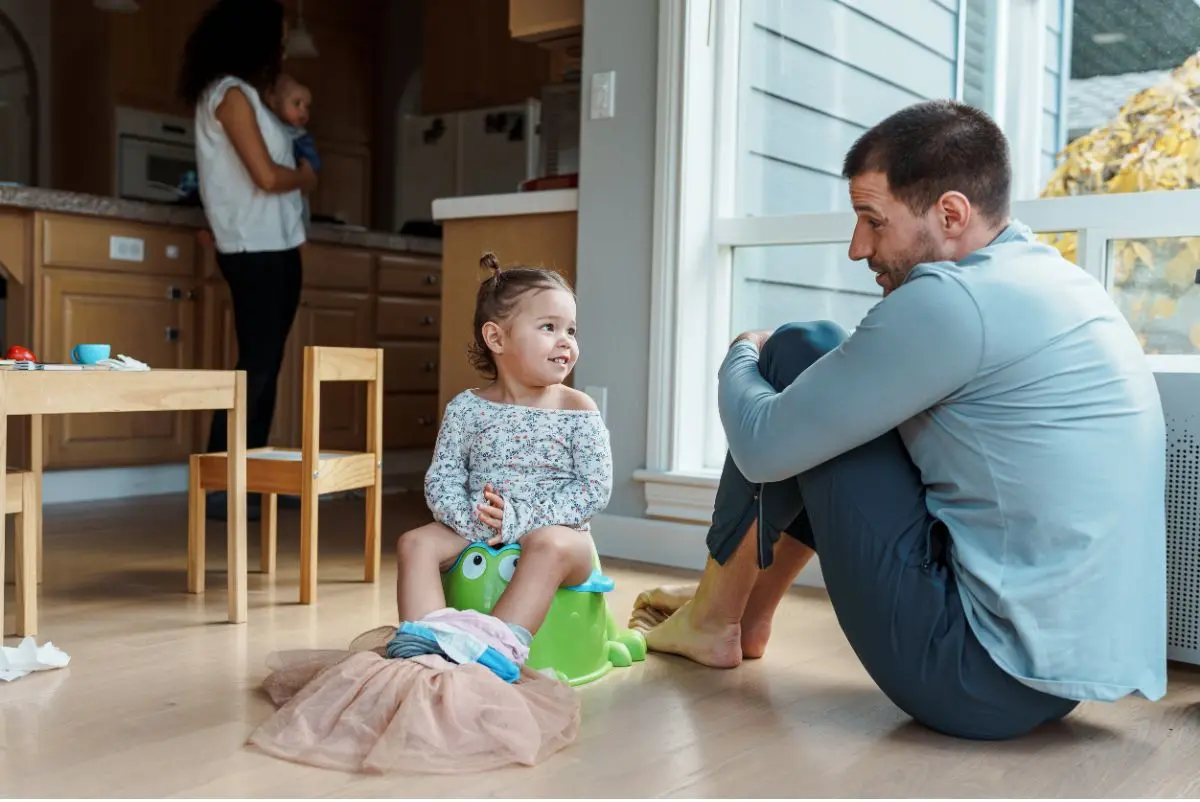
- A comfortable and easy-to-use potty chair or seat.
- Step stool for reaching the toilet and sink.
- Training pants or underwear that are easy to pull on and off.
- Flushable wipes for easy clean-up.
- Books, toys, or other distractions to help your child relax during potty breaks.
How Do You Potty Train With a Busy Schedule?
Potty training with a busy schedule can be challenging but is achievable with proper planning and consistency. Here are some tips to help you manage potty training despite a hectic lifestyle:
1. Create a routine: Establish a consistent routine for potty breaks, such as after meals, before bedtime, and after waking up. This helps your child understand when they’re expected to use the toilet.
2. Utilize downtime: Make the most of your downtime at home by incorporating potty training during those periods. Weekends or days off are perfect opportunities to dedicate more time and focus on the process.
3. Coordinate with caregivers: If your child spends time with other caregivers, such as babysitters or daycare providers, ensure that they are informed of your potty training approach and are consistent with the routine and methods you’ve established.
4. Be flexible: Understand that there will be setbacks and accidents, especially when you have a busy schedule. Stay patient and flexible, adjusting the routine as needed to accommodate your child’s progress.
5. Prepare for outings: When you need to leave the house, make sure you’re prepared with extra clothes, wipes, and a portable potty or toilet seat cover. Encourage your child to use the bathroom before leaving home and take regular potty breaks while you’re out.
6. Use reminders: Set reminders on your phone or use a timer to ensure you don’t miss scheduled potty breaks during busy days.
7. Stay positive: Praise your child for their successes and stay encouraging even when there are setbacks. A positive attitude will help keep your child motivated and engaged in the process.
What Are the Practical Signs That a Child Is Ready for Potty Training?
There are several practical signs that indicate a child is ready for potty training:
- The child has a regular and predictable schedule for bowel movements, making it easier to anticipate when they need to use the toilet.
- Your child stays dry for at least two hours at a time or wakes up dry after a nap, showing that they have some control over their bladder.
- The child communicates their discomfort when their diaper is wet or soiled, either verbally or through non-verbal cues.
- Your child shows curiosity about the toilet or potty chair and may even imitate you or older siblings by sitting on it or pretending to use it.
- The child has the motor skills necessary to pull their pants up and down, which is essential for using the toilet independently.
- Your child can comprehend and follows basic instructions related to the potty training process, such as “Let’s go to the bathroom” or “Sit on the potty.”
What Are Some Reasons Why a Child May Not Be Ready to Potty Train?
Several factors can contribute to a child not being ready for potty training:
- If a child is too young (usually under 18 months), and has not developed the necessary physical and cognitive skills for potty training.
- Lack of bladder and bowel control
- Limited communication skills
- Lack of interest
- Lack of motor skill development
- Emotional factors
FAQs
When should I start potty training my child?
There’s no specific age for potty training, but most children show readiness between 18 months and 3 years old. Look for the signs mentioned in this guide to determine if your child is ready.
How long does potty training usually take?
The duration of potty training varies for each child. Some children may learn within a few days, while others may take several weeks or even months. It depends on your child’s readiness and the method you choose.
My child is afraid of the toilet. What should I do?
Introduce a potty chair or seat that your child feels comfortable using. Encourage them to sit on it while fully clothed at first to help them become familiar with it. Gradually progress to using it for its intended purpose.
How can I help my child stay dry during the night?
Nighttime dryness often comes after daytime training. Encourage your child to use the toilet before bedtime and limit liquids before sleep. Be patient, as achieving nighttime dryness may take longer than daytime training.
My child was successfully potty trained but is now having accidents. What should I do?
Regression can happen due to various reasons, such as stress, changes in routine, or illness. Reassure your child and re-establish the potty training routine. If the problem persists or there are concerns about your child’s health, consult a pediatrician.
Conclusion
Potty training is a journey that requires patience, consistency, and understanding. And recognizing the signs of readiness, choosing the right method for your child, and following the tips discussed in this guide, you’ll be well on your way to a successful and stress-free potty training experience. Remember, every child is different, so be patient and celebrate their successes along the way.

I am Christiana Williams, a multitasking sociologist and proud mama of three. With a passion for exploring the complexities of modern parenting, I bring my unique perspective and expertise to the table. As a seasoned parent and seasoned sociologist, I have a wealth of knowledge and experience to share. From the ups and downs of raising a family to the latest research on child development, I am on a mission to help other parents navigate the joys and challenges of parenthood. Get ready to be inspired, informed, and entertained as I share my insights and adventures as a parent.

